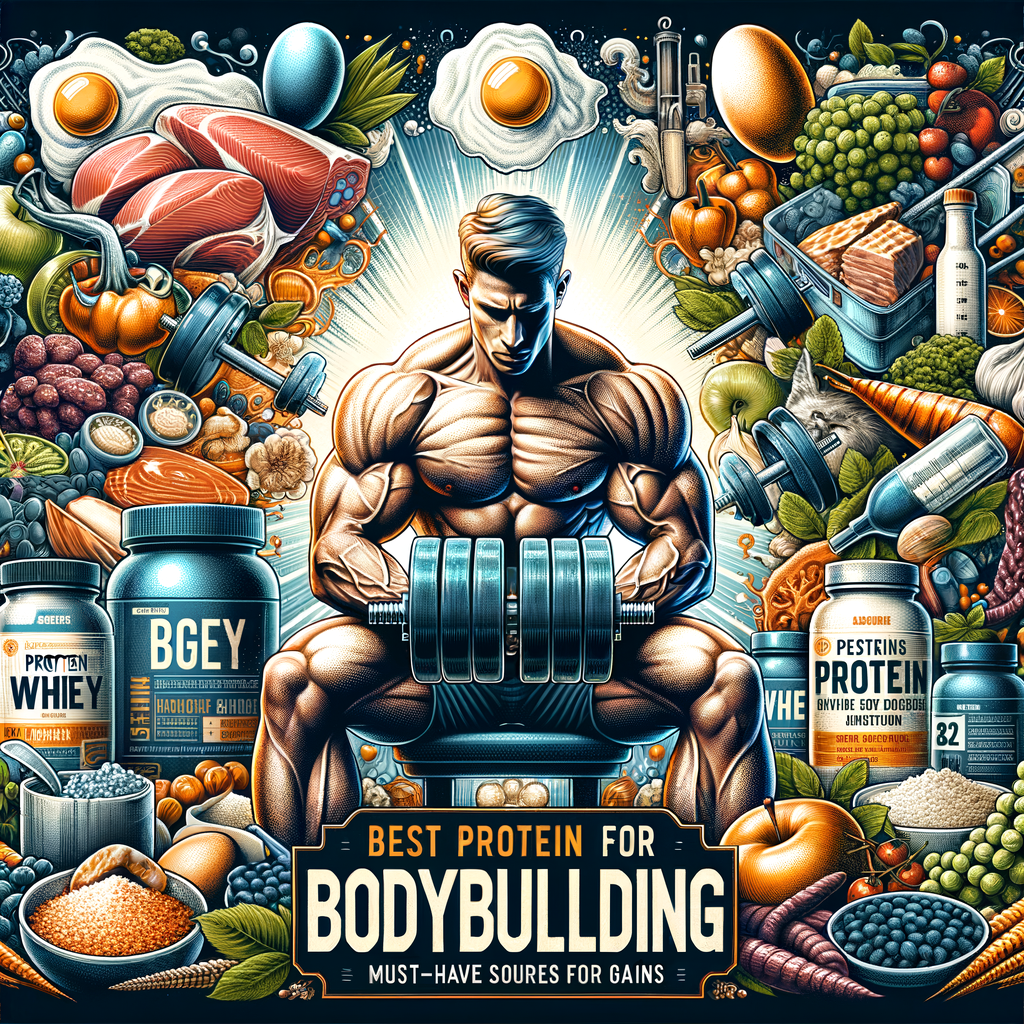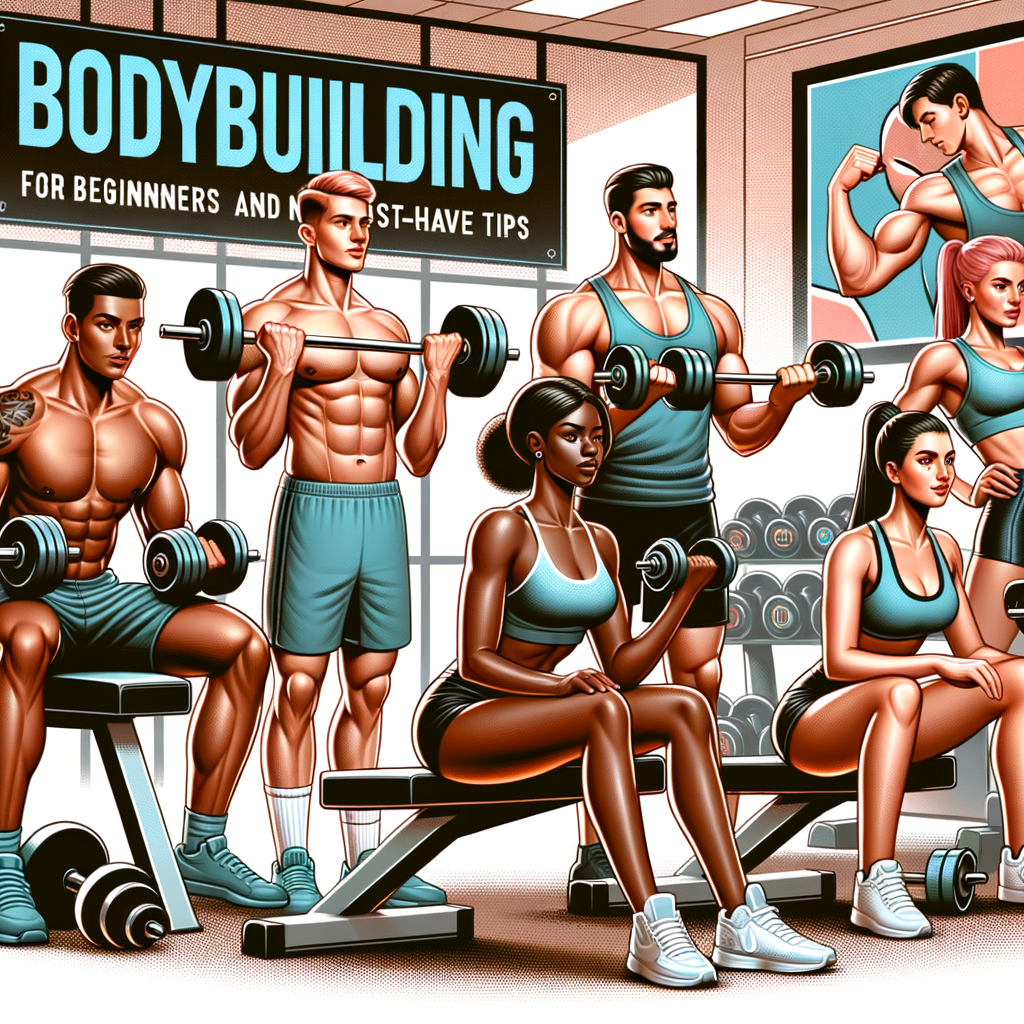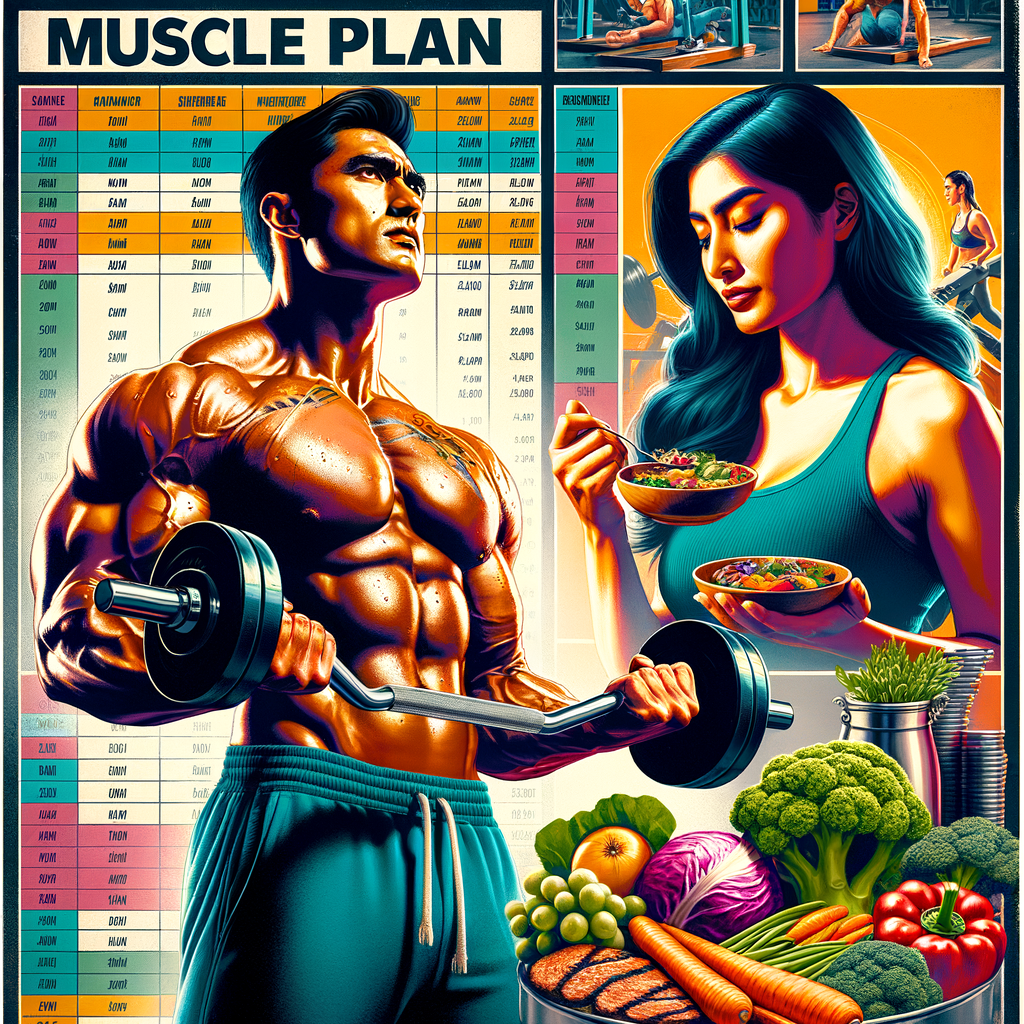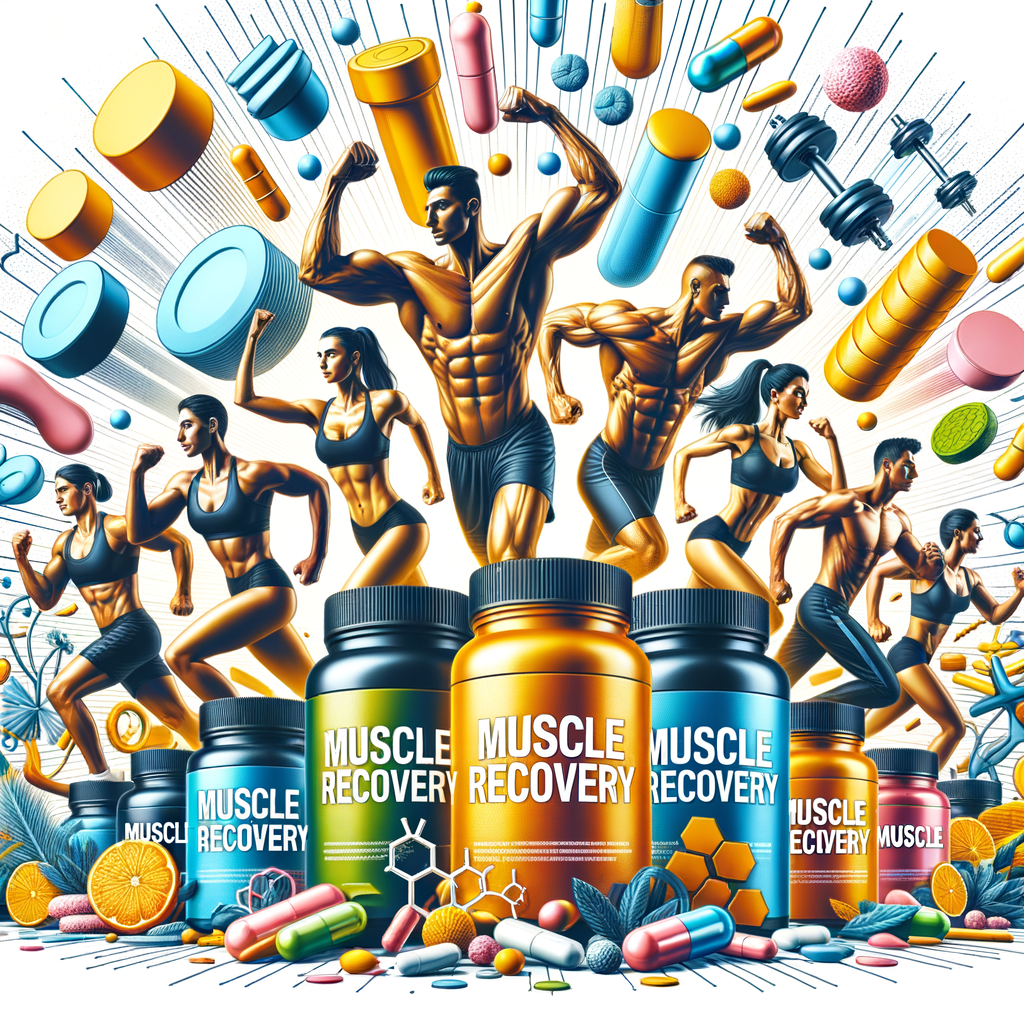- Understanding Protein and Its Role in Bodybuilding
- Types of Protein
- Animal-Based Proteins
- Plant-Based Proteins
- How Much Protein Do You Need?
- Best Protein Sources for Bodybuilding
- 1. Whey Protein Isolate
- 2. Chicken Breast
- 3. Greek Yogurt
- 4. Turkey
- 5. Lentils
- 6. Tofu
- Protein Timing: When to Eat
- Protein Supplements: Should You Use Them?
- Building Muscle: The Bigger Picture
- Hydration's Role
- Balancing Macronutrients
- Everyday Protein-Rich Meals
- Overcoming Common Protein Myths
- Monitoring Your Progress
- Conclusion
- FAQs
- References
Understanding Protein and Its Role in Bodybuilding
Protein is a crucial macronutrient that significantly influences muscle growth and repair. For bodybuilders, understanding how protein works can make a substantial difference in performance and results. Beyond merely consuming protein, recognizing various sources and types is key to optimizing gains.
Muscles consist primarily of protein, specifically amino acids, which are the building blocks of muscle tissue. When you engage in strength training, you create tiny tears in your muscle fibers. Consuming adequate protein post-workout helps repair these tears, leading to muscle growth. Therefore, choosing the best protein sources for bodybuilding is vital.
Types of Protein
Bodybuilders should be aware that not all proteins are created equal. The two primary types of protein are animal-based and plant-based. Each type has its advantages and disadvantages. Let’s explore both in detail.
Animal-Based Proteins
Animal-based proteins, like whey, casein, and eggs, are often considered the gold standard for muscle repair. They provide a complete amino acid profile, meaning they contain all essential amino acids your body cannot produce.
1. Whey Protein: This fast-digesting protein is popular among bodybuilders. It promotes quick muscle recovery due to its high leucine content, an amino acid known for stimulating muscle protein synthesis.
2. Casein Protein: Unlike whey, casein digests slowly, providing a steady release of amino acids. It’s an excellent choice for nighttime use, allowing your muscles to repair while you sleep.
3. Eggs: Rich in protein and healthy fats, eggs pack a punch with around 6 grams of protein per egg. They provide all essential amino acids and are versatile in cooking.
Plant-Based Proteins
With the rise of vegetarian and vegan diets, plant-based proteins have gained popularity. While some plant sources might not provide a complete amino acid profile, combining different sources can yield similar benefits.
1. Soy Protein: Soy is a complete protein, making it a solid choice for vegetarians. It helps in muscle recovery and builds strength.
2. Pea Protein: This option is excellent for those with allergies or sensitivities. Pea protein is rich in iron and helps in muscle growth.
3. Quinoa: Often mistaken for a grain, quinoa is a complete protein source. It’s also gluten-free, making it suitable for various diets.
How Much Protein Do You Need?
The protein needs of an individual, especially a bodybuilder, can vary widely. The general recommendation is about 1.6 to 2.2 grams of protein per kilogram of body weight. To put that into perspective, a 70 kg (154 lbs) athlete would need between 112 to 154 grams of protein daily.
It’s essential to distribute protein intake throughout the day. Consuming protein at regular intervals keeps muscle protein synthesis elevated. Therefore, aiming for protein-rich meals and snacks is advisable.
Best Protein Sources for Bodybuilding
When focusing on the best protein for bodybuilding, you want to consider both quality and quantity. Here’s a list of some top protein sources that can fuel your muscle gains effectively.
1. Whey Protein Isolate
Whey protein isolate is often hailed as one of the best protein powders. It contains around 90% protein and has minimal fats and carbohydrates. It’s easy to digest and absorbs rapidly, making it perfect for post-workout recovery.
2. Chicken Breast
Lean chicken breast is a go-to for many bodybuilders. It offers about 31 grams of protein per 100 grams, along with essential vitamins and minerals.
3. Greek Yogurt
Greek yogurt serves as a fantastic snack. It contains roughly 10 grams of protein per 100 grams and is loaded with probiotics, supporting gut health.
4. Turkey
Turkey is not only a high-protein food but also low in fat. Ground turkey, for example, delivers about 29 grams of protein per 100 grams.
5. Lentils
Rich in protein and fiber, lentils are great for vegetarians. They provide around 9 grams of protein per 100 grams when cooked.
6. Tofu
Tofu, made from soybeans, is an excellent protein source for vegetarians. It contains about 8 grams of protein per 100 grams and is versatile in various dishes.
Protein Timing: When to Eat
Timing your protein intake can significantly impact your gains. Consuming protein close to your workout can maximize muscle repair and growth. Aim for a protein-rich meal or shake within 30 to 45 minutes post-workout.
Additionally, don’t underestimate the power of breakfast. Starting your day with a protein-rich meal sets the tone for your nutritional intake. Consider incorporating eggs or Greek yogurt to kickstart your metabolism.
Protein Supplements: Should You Use Them?
Protein supplements can be helpful for those who struggle to meet their protein requirements through whole foods. However, they should complement a balanced diet rather than replace it.
Here’s a quick overview of popular protein supplements:
| Supplement | Protein Content (per serving) | Best For |
|——————–|——————————-|————————–|
| Whey Protein | 20–30 grams | Post-Workout Recovery |
| Casein Protein | 20–30 grams | Nighttime Nutrition |
| Plant-Based Blend | 15–25 grams | Vegans/Vegetarians |
| Egg White Protein | 20 grams | Lean Protein Source |
Always consult with a healthcare professional or nutritionist before starting any supplement regimen.
Building Muscle: The Bigger Picture
While protein is crucial for muscle building, it’s essential to consider the bigger picture. A well-rounded diet, rich in carbohydrates and healthy fats, is fundamental. Carbohydrates provide the energy needed for intense workouts, while fats are vital for hormone production and overall health.
Hydration’s Role
Hydration plays a pivotal role in muscle recovery and performance. Ensure you drink plenty of water throughout the day. Being dehydrated can impair your workouts and overall gains. Aim for at least 3 liters of water daily, adjusting based on heat and activity levels.
Balancing Macronutrients
For optimal gains, balance your macronutrients—proteins, carbs, and fats. A common starting point for bodybuilders is a ratio of 40% carbohydrates, 30% protein, and 30% fat. Adjust these ratios based on your unique needs.
Everyday Protein-Rich Meals
To make it easier for you, here’s a list of simple meals that provide ample protein and taste great:
1. Chicken Stir-Fry: Cook chicken breast with mixed vegetables and a side of brown rice.
2. Protein Smoothie: Blend whey protein, a banana, and almond milk for a quick post-workout drink.
3. Egg Omelet: Whip up an omelet with spinach and feta cheese.
4. Greek Yogurt Parfait: Layer Greek yogurt with berries and nuts for a tasty snack.
5. Lentil Soup: A hearty bowl of lentil soup makes for a filling meal rich in protein.
Overcoming Common Protein Myths
Several misconceptions about protein may hinder your gains. Here are a couple of common myths debunked:
1. More Protein Equals More Mass: While protein is essential, an excess won’t lead to increased muscle mass. It’s about finding the right balance.
2. All Proteins Are Equal: Not all protein sources offer the same benefits. Focus on high-quality proteins for best results.
Monitoring Your Progress
Tracking your progress can help keep you motivated. Consider these options:
– Keep a journal of your workouts and diet.
– Use apps to log nutrient intake.
– Regularly take measurements and photos to visualize changes.
Conclusion
Embarking on a bodybuilding journey is about more than just lifting weights. Nutrition plays a crucial role, and understanding the best protein sources is vital for optimal gains. Focus on incorporating a variety of high-quality proteins into your diet, and don’t forget the importance of balanced nutrition and hydration.
With dedication and the right approach, achieving your bodybuilding goals is entirely within reach. Start today, make informed choices, and enjoy the process!
FAQs
1. What’s the best time to consume protein for muscle gain?
Aim for a protein-rich meal or snack within 30 to 45 minutes post-workout.
2. Can I get enough protein from a vegetarian or vegan diet?
Yes, by combining various plant-based sources, you can meet your protein needs.
3. Is whey protein safe for everyone?
While generally safe, those with lactose intolerance may want to avoid whey or choose whey isolate.
4. How do I know if I’m consuming enough protein?
Monitor your daily intake against recommendations, and assess your muscle recovery and growth.
5. Can I rely solely on protein shakes?
Protein shakes should complement, not replace, a balanced diet rich in whole foods.
6. Is there such a thing as too much protein?
Overconsumption may not directly cause harm, but it won’t translate to increased muscle mass and may stress the kidneys over time.
7. Should I take protein supplements every day?
It’s not necessary but can be convenient. Focus on meeting daily protein needs primarily through whole foods.
8. What are complete proteins?
Complete proteins contain all nine essential amino acids needed by the body. Animal proteins and some plant proteins like quinoa and soy are examples.
9. Can drinking protein shakes replace meals?
While they can be meal replacements, aim for a balanced diet that includes whole food options.
10. How should I balance protein, carbs, and fats in my diet?
A common starting point is 40% carbohydrates, 30% protein, and 30% fat, but adjust based on personal goals.
References
– Healthline
– Bodybuilding.com
– Nutrition.gov
– Mayo Clinic
– American Journal of Clinical Nutrition
Feel free to explore these resources for further information on protein and nutrition for bodybuilding!



